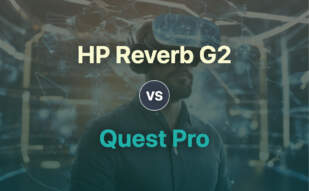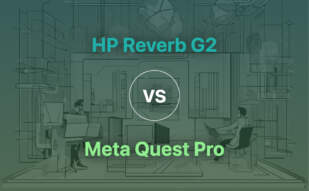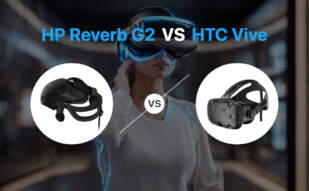For immersive VR experiences with superior resolution, choose the HP Reverb G2. However, the HP Omnicept stands apart with its advanced biometric sensors, suited more towards enterprise use-cases, where rich user data tracking can enhance training and collaboration.
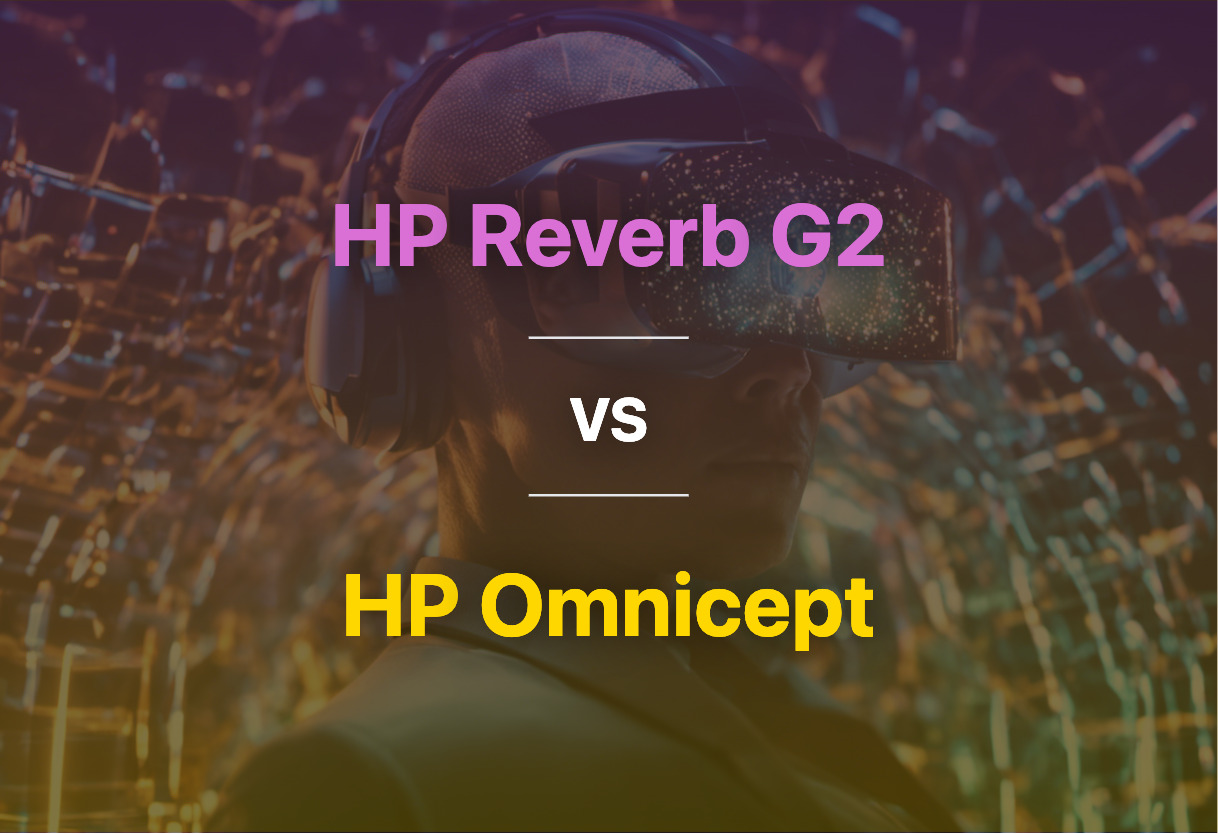
Key Differences Between HP Reverb G2 and HP Omnicept
- The Reverb G2 is a consumer-focused VR headset, while the Omnicept is designed for enterprise usage with advanced sensors for eye, mouth, and heartbeat tracking.
- Both offer 2160×2160 pixels per eye resolution, but the Omnicept includes features like adjustable lenses and 3D spatial audio for a more premium experience.
- Reverb G2 works seamlessly with the Windows Mixed Reality platform and the SteamVR ecosystem, whereas Omnicept provides access to its SDK for deeper developer integration.
- At $599, the Reverb G2 is cheaper than the Omnicept, which is priced at $1,250, reflecting the difference in provided features and target markets.
| Comparison | HP Reverb G2 | HP Omnicept |
|---|---|---|
| Price | $599 | $1,250 |
| Target Audience | Consumer/Professional | Enterprise |
| Image Resolution (Per Eye) | 2160 x 2160 | 2160 x 2160 |
| Refresh Rate | 90 Hz | 90 Hz |
| Tracking Capabilities | Camera-Based | Camera-Based + Biometrics |
| Setup | Windows Mixed Reality with SteamVR compatibility | Reverb G2 and HP Omnicept Software |
| Headset Design and Comfort | Improved comfort and memory foam | Improved strap tightening mechanism |
| Portability and Space Requirement | Requires less physical space | Similar to Reverb G2 |
| Power | 67 Watts Fast Charging | Similar to Reverb G2 |
| Hardware Compatibility | Intel Core i5 CPU, Nvidia GeForce 1080 or AMD Radeon 5700 GPU | Similar to Reverb G2 |
| Software Compatibility | SteamVR and Windows Mixed Reality | SteamVR and Windows Mixed Reality + Omnicept SDK |
| Addtional Features | Improved motion controllers included, no finger-tracking capabilities | Off-ear headphones, microphone, pass-through cameras, eye, mouth and heartbeat tracking |
What Is HP Reverb G2 and Who’s It For?
The HP Reverb G2 is a revamped virtual reality headset primarily intended for professional use. It’s an updated model of the original Reverb that was released in 2019. With its enhanced comfort and four-camera setup, this VR headset shows 2,160 by 2,160 pixels per eye at 90Hz with LCDs, competing against HTC Vive Pro, Vive Focus, Oculus Quest 2 and Valve Index.
It caters to both VR enthusiasts and professionals requiring high-resolution visuals and camera-based motion tracking at a competitive price, supported on systems using Windows 10 May 2019 update or later running on Intel Core i5 CPU or AMD Ryzen 5 equivalent and above, with Nvidia GeForce 1080 or AMD Radeon 5700 GPU and above for optimal performance.

Pros of HP Reverb G2
- Camera-based tracking system eliminates need for external sensors
- Sharp 2,160 by 2,160 pixel resolution per eye
- Comfortable memory foam-covered facemask
- Competitive pricing against rivals
- Compatibility with SteamVR and Windows Mixed Reality platforms
Cons of HP Reverb G2
- Lower refresh rate compared to HTC Vive Pro 2 and Valve Index
- Lack of wireless charging
- Occasional tracking hiccups
- Performance dictated by the power of the connected PC.
What Is HP Omnicept and Who’s It For?
The HP Omnicept is another virtual reality headset by HP, designed for enterprise use. It offers advanced features like eye, mouth, and heartbeat tracking while complying with GDPR, offering assurance on user data privacy. Boasting a resolution of 2160×2160 pixels per eye (4.7MP), and a refresh rate of 90Hz, it aims to improve training, well-being, creation, and collaboration in enterprise scenarios and elevates the user experience with sensors and AI utilization.
Its wide range of applications is suitable for businesses seeking to leverage the power of VR in their operations and those interested in building VR solutions using HP’s SDK. It offers a free SDK for non-profit use, with a 2% revenue share for profit-based applications.

Pros of HP Omnicept
- Advanced sensor suite for eye, mouth, and heartbeat tracking
- Compliance with GDPR for user privacy
- Accessible SDK for developers
- High-resolution viewing with 2160×2160 pixels per eye
Cons of HP Omnicept
- Higher price point compared to consumer VR headsets
- Requires robust PC hardware for optimal performance
- Additional cost for software deployment
Which Makes the Cut? HP Reverb G2 or HP Omnicept?
When battling it out in the VR arena between Reverb G2 and Omnicept, only one can emerge as king.
VR Hobbyists
For hobbyists with a passion for VR, the HP Reverb G2 is a hands-down winner. With its superior resolution and affordable price tag, it clearly outstrips Oculus Quest 2 or Valve Index.
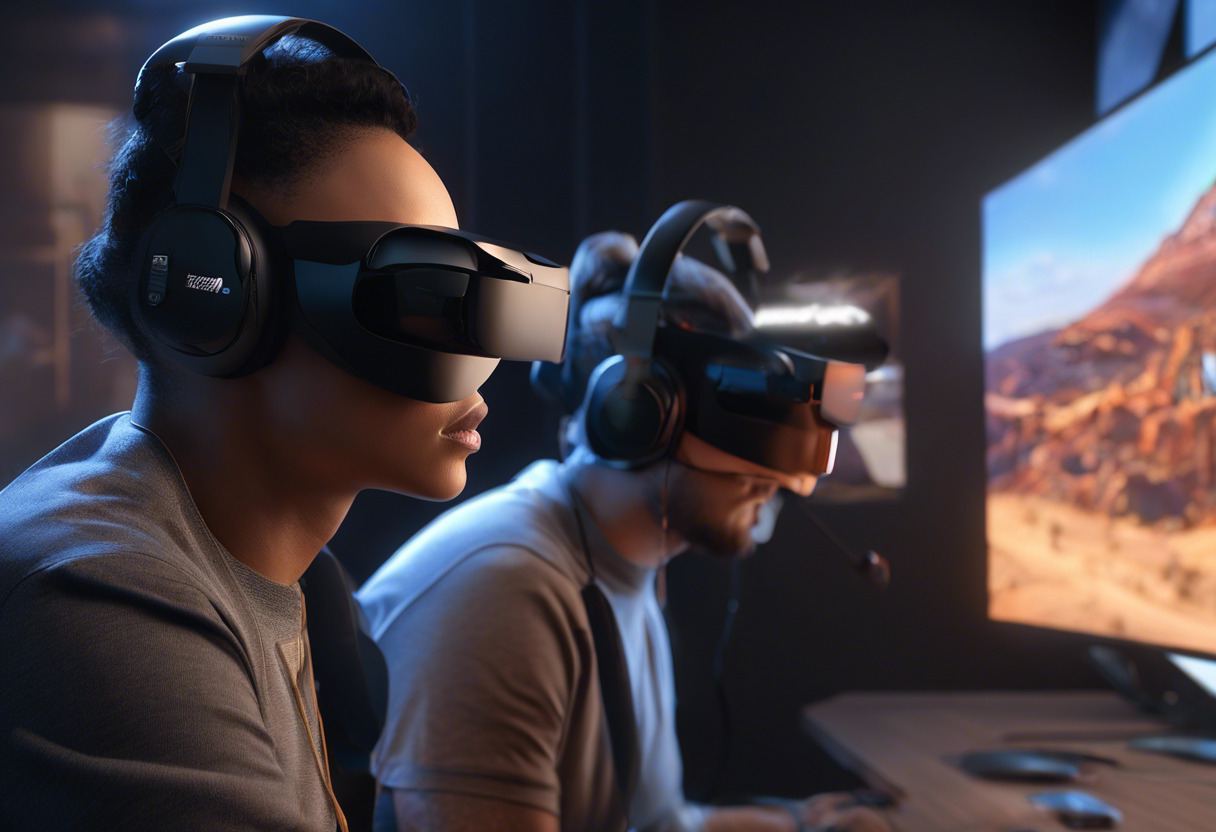
Professional Developers
Omnicept is the go-to choice for professional VR developers. With its rich sensor data and exclusive developer-focused features like face camera and heart rate API, it provides a unique playground for creating data-driven immersive experiences.
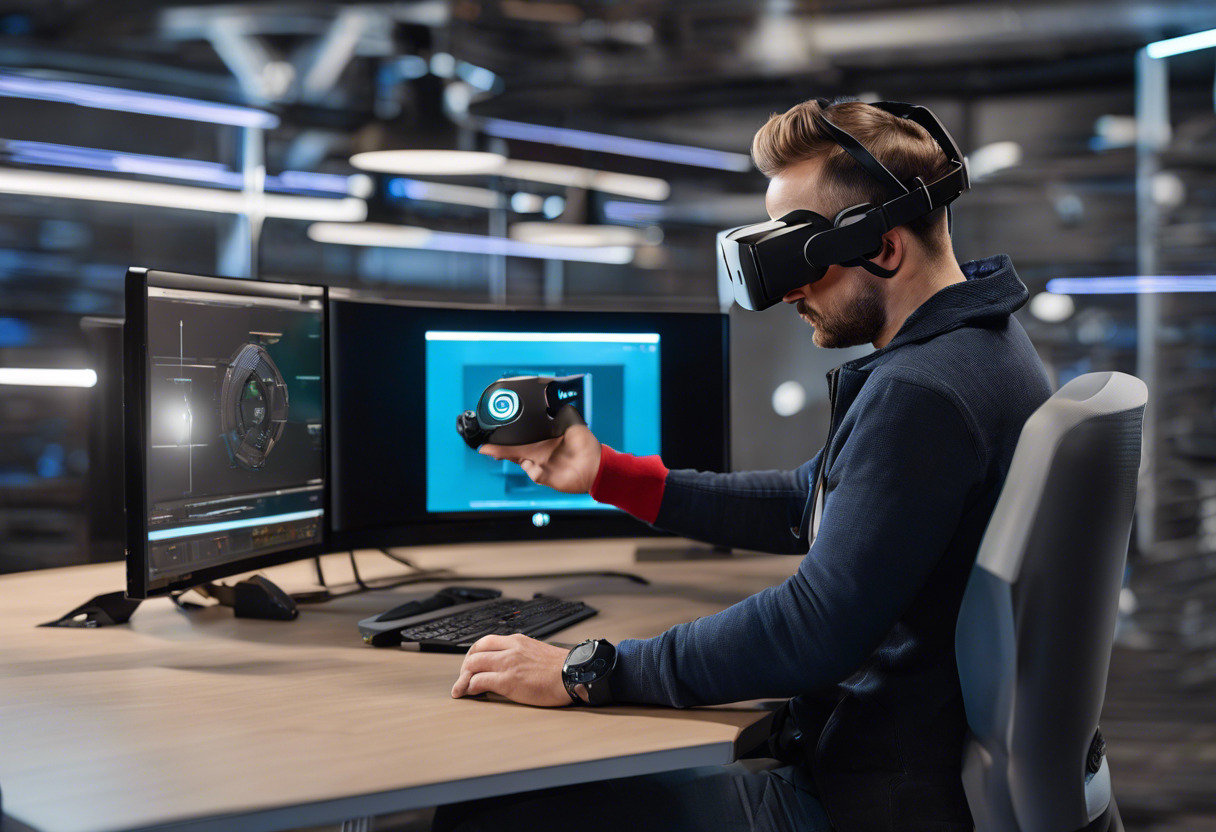
Enterprise Users
When it comes to enterprise applications, HP Omnicept reigns supreme. Its advanced biometric analytics and superior specifications make it perfect for large-scale training, collaboration, and other business applications.

In the VR showdown, HP Reverb G2 scores for casual users and VR purists owing to its unmatched visuals and affordability, while the HP Omnicept flexes its muscles in the enterprise sector with its advanced data-tracking capabilities.
Logan Bellbrook
Content writer @ Aircada with a knack for nature & AR/VR/XR. Blogging the intersection of tech & terrain.



